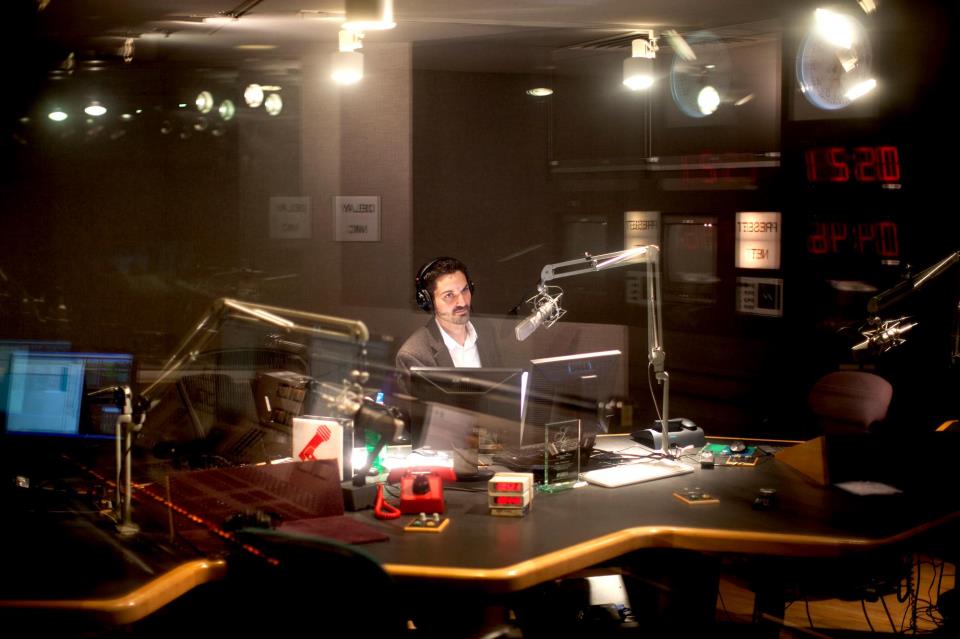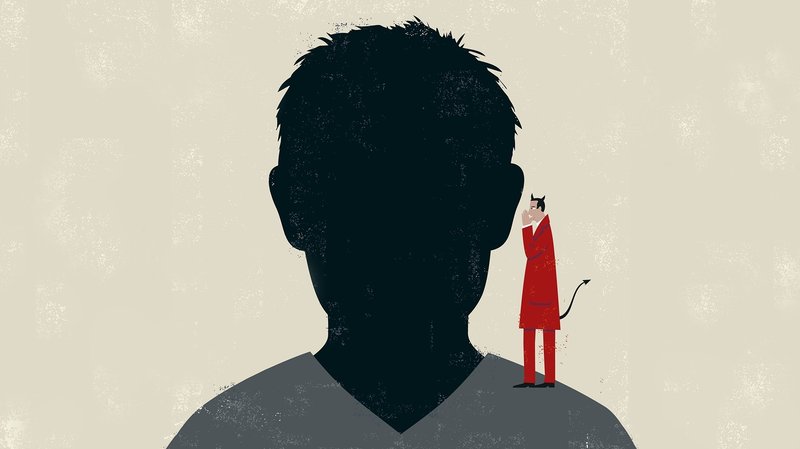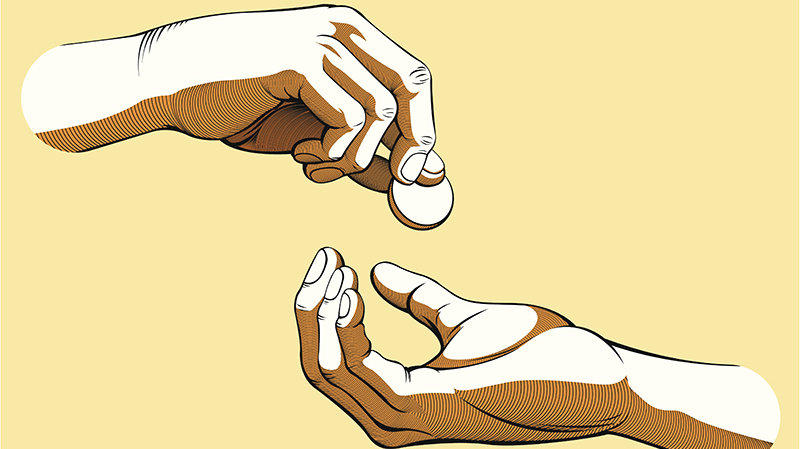
On each episode of TED Radio Hour, host Guy Raz takes us on an auditory journey through ideas. This booth is where the magic is made.
This Friday, TED Radio Hour kicks off its third season. As one of the editorial consultants for the show on TED’s side, I am always impressed with the way Guy Raz and his team experiment with new ways of storytelling. In Friday’s episode, we’ll solve for x; the week after, we’ll take a look at the power of play.
But before we move forward, how about a look back? Here are a few episodes to get caught up on season two.
 Must-listen episode #1: Seven Deadly Sins
Must-listen episode #1: Seven Deadly Sins
Typically, TED Radio Hour covers a single topic with three or four speakers who take that idea in many directions. But in our single most downloaded episode in the last few months, we took a different approach. This episode had seven speakers, each musing on a deadly sin: psychologist Christopher Ryan with a nuanced thought on lust, Oklahoma City Mayor Mick Cornett on how his city sidestepped gluttony, Dave Meslin on political apathy and sloth, self-declared plutocrat Nick Hanauer on greed, Dr. Gary Slutkin on wrath as an epidemic, editor Parul Sehgal on the “grim thrill” of envy, and Jeopardy know-it-all Ken Jennings on how losing to a supercomputer affected his pride.
 Must-listen episode #2: Success
Must-listen episode #2: Success
This episode felt inevitable; success is a topic that comes up often in TED Talks and is constantly on many of our minds. How do you define it so that it’s measured by what matters, and not by wealth, influence and status? This hour started with Tony Robbins, whose TED Talk was one of the first six we ever posted. Then, psychologist Angela Lee Duckworth built on his idea by looking at “grit” as a predictor of success. And after thoughtful interludes with Mike Rowe and Ron Gutman, philosopher Alain de Botton digs into a fascinating view about the American paradigm of failure that reframed my ideas of how to define success in my own life.
 Must-listen episode #3: Keeping Secrets
Must-listen episode #3: Keeping Secrets
Everyone loves a good secret. But who should get to keep secrets, and who should demand to know them? This episode starts off with a beautiful segment on Frank Warren, the founder of PostSecret. He takes us into his home, where he shares a few of the half-million secrets that strangers have sent him on postcards — including a few he will never post on his website. Then equality advocate Ash Beckham offers a fresh story about the “closets” we all keep, and why secrets are just a way of avoiding difficult conversations. We hear from TED Prize winner Charmian Gooch, whose mission is to “out” corrupt companies. And finally, journalist Glenn Greenwald, one of the first to release documents from whistleblower Edward Snowden, makes the case for why you need to care about privacy, even if you’re not engaged in “suspicious” activity.
 Must-listen episode #4: Just A Little Nicer
Must-listen episode #4: Just A Little Nicer
A personal favorite of mine, this episode is about making empathy and compassion sexy again. Too often we think of compassion as soft, fluffy stuff, but this lineup of speakers looks at it as a necessary virtue. We start with political pundit Sally Kohn, who urges us to be more emotionally correct, like … her former FOX colleague, Sean Hannity? Krista Tippett argues that overtly saintly and sappy connotations have made us lose touch with the true meaning of compassion, and proposes a “linguistic revival.’ Robert Wright uses evolutionary biology to explain that humans are wired to be compassionate and have evolved to feel compassion out of self-interest. And Daniel Goleman, author of Emotional Intelligence, examines the real reason we aren’t more compassionate more of the time.
 Must-listen episode #5: Haves and Have Nots
Must-listen episode #5: Haves and Have Nots
Current projections of income inequality aren’t looking too promising, but these speakers give me hope that this seemingly impossible problem could someday be solved. Ernesto Sirolli shares a humorous, yet humbling account of why his well-intentioned aid program in Africa went awry. Author and politician Chrystia Freeland charts the rise of today’s billionaire plutocrats, and wonders what concentrated super-wealth means for the rest of us. Historian Niall Ferguson explains why, when it comes to amassing wealth, it’s been the West versus the rest for, oh, the past 500 years. Ghanaian economist George Ayittey says that when it comes to Africa, it’s up to a new generation to bring about accountability. And Jacqueline Novogratz, CEO of Acumen Fund, discusses groundbreaking work that connects poor people to the global economy.
Must-listen episode #6: Peering Into Space
This was one of our first episodes with Guy Raz as host, and it remains one of his favorites. In an interview with him from right before this episode aired, he explained why: “I think people who haven’t taken the time to look at the stars recently are going to be amazed by what they hear. You look out at the brightest star in the sky — which is Polaris — and it’s eight and a half years ago. You are looking at the past in real time. That idea to me is so beautiful.” This episode is all about the universal sense of wonder that space inspires, with interviews with astronomer Phil Plait, Jill Tarter of the SETI Institute and physicist Brian Greene.
Thanks for listening!

Comments (3)